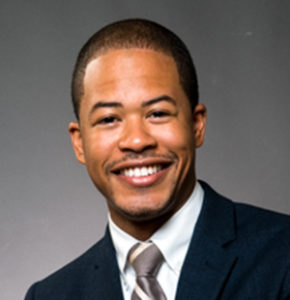
Timothy Peoples
The service had ended. The music was amazing; the homily – not preached by me – was life changing; and we all exited in silence with ashen crosses adorning our foreheads. I had to rush to a meeting, so I soon forgot all about my cross.
Later, as the night was growing late, I realized I was hungry, so I went with a couple of church members to our local tavern to fellowship. Someone sitting at the bar yelled out, “Hey! You got something black on your face!” Without thinking, I yelled back, “Hey! It’s my skin!”
Although I am still new to the community, this town has come to understand what many call my “unusual pastor ways.” Like being on the front cover of the newspaper dancing in bright pink pants. Or throwing out jokes or one-liners (as in this case) that catch people off guard and sometimes make them uncomfortable. However, instead of my response pushing this man away, it prompted him to move closer. We talked about what the ashes on my forehead truly meant.
“It still catches my breath to be reminded that I am – we are – dust.”
I got home that night and stared in the mirror at what had been a cross, but was now just a smudge on my forehead. As I began to wipe off the ashes – the dust – I began to cry. I realized that I was surrounded by so many reminders of what and who I am, especially on this one night of the church year. In the midst of dust everywhere around me from renovating the house, and now with dust on my forehead, I was reminded of the physical composition of myself – from dust, returning to dust. I know we hear often from pulpits and scriptures that we should not fear death, but instead be amazed by the freedom and calling of life. But, in some moments, the composition of who we are overwhelms the freedom of who we are called to be.
Life is the revealing of the divine, the fulfillment of the scriptures and prophecies that we are a new creation because of our deliverance in Christ. While we may live here on earth, we are beings who dwell in the knowledge of God and live each moment in the presence of God.
I know all that, yet it still catches my breath to be reminded that I am – we are – dust. On days like Ash Wednesday, I am confronted (literally in the mirror) with questions about my own humanity and the tenderness – and perhaps urgency – of life. A life that is waiting to be all that God created me to be. And waiting to recognize all that others were created to be, before we all return to dust.
In Their Eyes Were Watching God (1937), African-American Womanist Zora Neale Hurston wrote:
When God had made The Man, [God] made him out of stuff that sung all the time and glittered all over. Some angels got jealous and chopped him into millions of pieces, but still he glittered and hummed. So, they beat him down to nothing but sparks but each little spark had a shine and a song. So, they covered each one over with mud. And the lonesomeness in the sparks make them hunt for one another.
If only the hunt for that spark truly mattered to each of us. Through the failed policies and unjust systems of government, the scandals and abuses from the Church, and the outright disrespect for self and neighbor, the hunt for that spark in each person seems to have diminished.
“May we each begin to discover the spark in those around us, with no exceptions.”
During this season of Lent, we may walk each day singing “What wondrous love is this, o my soul!” asking ourselves to do deep and important work. Lent is a time to focus on ourselves, but it is also much more than that. Lent allows us to reflect communally on and prepare for redemption that comes for more than just me. God’s redemption comes for us. For our community. For our world.
As we reflect on redemption, may we each begin to discover the spark in those around us, with no exceptions. Because we know that for each of us, the spark inside us is surrounded by the dust to which we will return.
